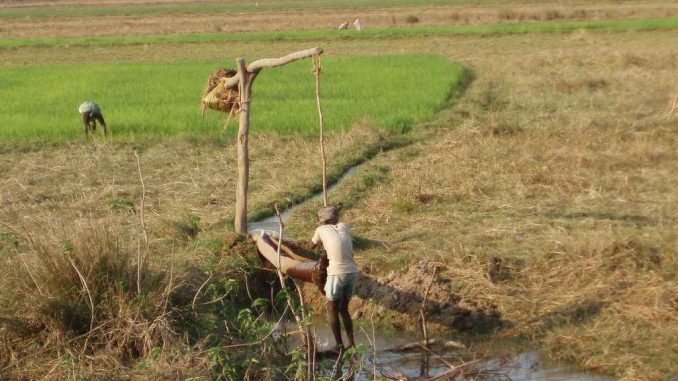
By Ashok Gulati & Gayathri Mohan
When Prime Minister Narendra Modi visits Israel this week, he will become the first Indian PM to do so. The Indo-Israeli partnership is likely to extend to new areas. Israel is already an important supplier of defence equipment to India; the cooperation is likely to extend to water and agriculture. In the run-up to the PM’s visit, ICRIER and the Israeli Embassy in India collaborated on a brainstorming session on a potential partnership between the two countries on water. The meet was attended by several experts from India and Israel. A few takeaways from this meet could result in MoUs between the two countries.
It is well-known that India is water stressed: The country’s annual per capita availability of water is less than 1,500 cubic meters (cum) and that scenario is likely to worsen. Currently, about 78 per cent of fresh water in India is used for agriculture. But Israel has per capita water availability of less than 200 cum. It is an extremely water scarce region. Yet, the country exports high-value agri-produce to Europe and many other parts of the world. If India has to learn about augmenting water supplies and using water efficiently, there is nothing better than learning from Israel’s experience. The country is known as the land of innovations in water management, be it drip irrigation, recycling of urban wastewater for use in agriculture or desalinisation of seawater for drinking purposes.
The Pradhan Mantri Krishi Sinchayee Yojana (PMKSY) encapsulates the PM’s ideas of “Har khet ko paani” and “more crop per drop”. Micro-irrigation technologies — drip irrigation and sprinklers — are not alien to India. In fact, Jain Irrigation Systems Limited — a multinational outfit based in Jalgaon, Maharashtra — has done well in this area, and has acquired the highest stakes in the second largest Israeli drip irrigation company, NaanDan. At Jalgaon, the company is innovating on this technology with the simple motto of “Small Ideas, Big Revolutions”. India has about nine million hectares under micro-irrigation. It can scale this up several times. But it needs to do so quickly. Israel can offer lessons to India in this respect. Any scaling up of technologies needs the right policy environment. Water is not a free good. It needs to be priced to reflect its scarcity. Can the Modi government usher in reforms to price water and power appropriately for irrigation purposes? That is certainly a tall order and so far the government has not shown much appetite to reform the regime of high subsidies on water and power, which is leading to their inefficient use.
As per Israel’s water law, all water in the country is common property resource. The government does accounting for every drop of water, ensuring good water governance. As a result, in 2013, of the total water available in Israel almost 16 per cent came from desalinating seawater and another 22 percent came from recycling wastewater. Interestingly, almost 62 per cent of the irrigation water used in Israel comes from recycled and brackish water, thus saving potable water for domestic use. Such recycling endeavours — of course with proper treatment that make wastewater safe — has relevance in India. Can the Modi government make recycling of wastewater for use in peri-urban agriculture an integral part of its smart city initiative? India does have the technology for this purpose. In fact, the municipality-owned sewage treatment plants in Surat and Nagpur supply treated wastewater to textile factories and thermal power stations, respectively.
Desalination technology can benefit India which has a long coastline of about 7,500 km. The Nemmeli desalination plant in Tamil Nadu, a source of potable water for people in Chennai, and the Jamnagar desalination plant in Gujarat are some of the joint Indo-Israeli initiatives in desalinating sea waters. Adoption of desalination technologies is at a nascent stage in India, owing to the high capital cost involved. The key issue for India is who bears the cost of such technologies — the government and/or the beneficiaries? This is an issue of public policy that needs to be sorted out
Another area of potential cooperation is cleaning polluted rivers. As per government reports, between 2009 and 2015, the number of polluted rivers and river stretches in India has almost doubled. Almost 63 per cent of the total sewage generated in the country is discharged into water bodies without any treatment resulting in acute river pollution. The Ganga and Yamuna, considered holy, are ironically the two most polluted rivers. Programmes to clean up the Ganges have, over 35 years, failed to achieve significant success. Recently, the Delhi Government has roped in the Israeli firm, Ayala Water and Ecology Limited, to clean up an eight km stretch of the Yamuna. Depending upon the success of this venture, the country can scale up the role of Israeli firms in cleaning up other rivers.
An integrated approach to solving India’s emerging water crisis, involving government to government, governance to business and business to business interactions between Indians and Israeli agencies has much to offer not only to the two countries but also to several countries in Africa which are starved of water.
Source: The Indian Express

Leave a Reply